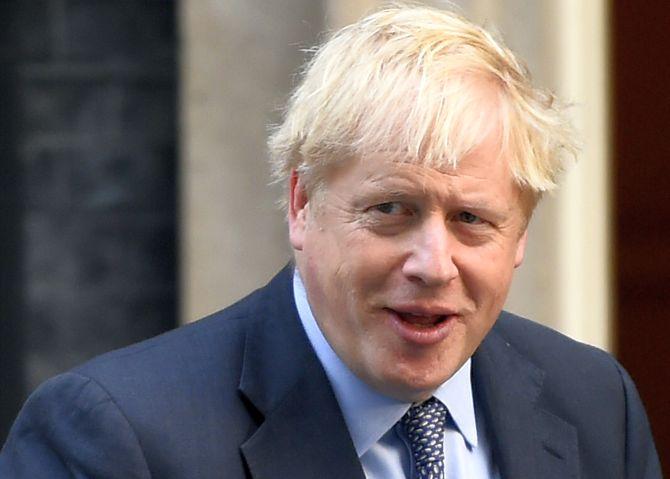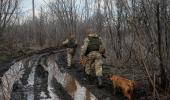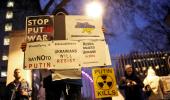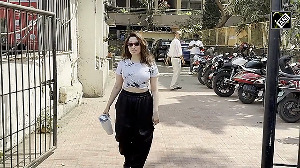The United Kingdom government on Tuesday imposed tough sanctions against five Russian banks and three super-rich oligarchs from the country over President Vladimir Putin's aggressive action on the Ukraine border.

British Prime Minister Boris Johnson told the House of Commons that this is the "first tranche” of measures in response to Russian troops moving into two separatist regions of Ukraine.
The sanctions target Rossiya, IS Bank, General Bank, Promsvyazbank and the Black Sea Bank, as well as billionaires Gennady Timchenko, Boris Rotenberg and Igor Rotenberg as three "very high net worth individuals". All three have been on the US sanctions list for a number of years as associates of Putin.
”Any assets they hold in the UK will be frozen, the individuals concerned will be banned from travelling here, and we will prohibit all UK individuals and entities from having any dealings with them,” Johnson told Parliament.
”This is the first tranche, the first barrage, of what we are prepared to do: we will hold further sanctions at readiness, to be deployed alongside the United States and the European Union if the situation escalates still further...we should steel ourselves for a protracted crisis.
"The United Kingdom will meet this challenge side-by-side with our allies, determined that we will not allow Putin to drag our continent back into a Hobbesian state of nature, where aggression pays and might is right,” he said.
”And it is precisely because the stakes are so high that Putin's venture in Ukraine must fail, must ultimately fail and be seen to fail. That will require the perseverance, the unity and the resolve of the entire Western alliance, and Britain will do everything possible to ensure that that unity is maintained,” Johnson added.
The UK’s action follows the recognition of breakaway areas of eastern Ukraine, Donetsk and Luhansk, as independent states by Russia, with troops moving in under the garb of ”peacekeeping” duties and Russian tanks and armoured personnel seen rolling in.
Johnson categorised this as a flagrant violation of the Minsk peace agreements, which amounts to a ”renewed invasion of that country”.
”And by denying Ukraine's legitimacy as a State -- and presenting its very existence as a mortal threat to Russia -- Putin is establishing the pretext for a full-scale offensive,” Johnson said in his Commons statement.
The sanctions received the backing of cross-party support in Parliament, with many MPs calling for further action against Putin. Downing Street said the UK's new sanctions against Russia were part of a "coordinated" approach to the Ukraine crisis together with the US and EU.
Earlier on Tuesday, Russia's ambassador to the UK, Andrey Kelin, was also summoned to the UK Foreign Office to register the UK's formal protest with the Russian Federation over Russia's ”continued undermining” of Ukraine's territorial integrity and sovereignty.
”The UK has urged Russia to explain its recognition of the so-called ’Donetsk People's Republic' and ’Luhansk People's Republic' and the movement of military forces into Ukraine,” said a spokesperson for the UK foreign, Commonwealth and development office (FCDO).
”We have summoned the ambassador today to stress that such actions are a violation of international law. The UK reiterates its unshakeable commitment to the sovereignty, territorial integrity, and independence of Ukraine, and insists that Russia immediately withdraw all of its military forces. We made clear to the Russian Ambassador that Russia would pay the price for its actions through further sanctions if it did not withdraw its troops,” the spokesperson said.
Sir Philip Barton, permanent under-secretary for the FCDO, warned the envoy of the sanctions being imposed and that further measures would follow unless Russia withdraws its troops.











 © 2025
© 2025